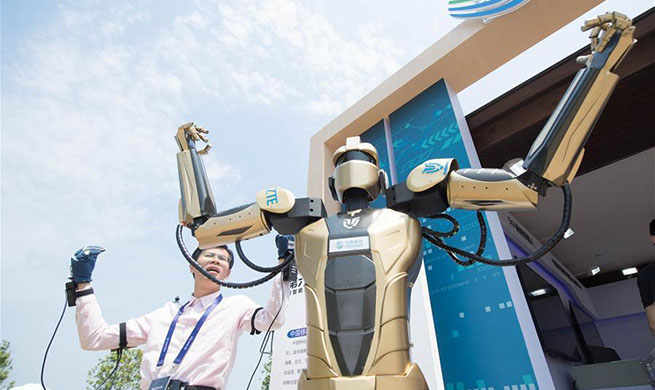LONDON, May 9 (Xinhua) -- An international consortium, led by the University of Cambridge, has concluded its engineering design work of key computing elements for the Square Kilometre Array (SKA) project, the SKA Organization announced on Thursday.
The SKA project is an international effort to build the world's largest radio telescope array, led by the SKA Organization based in Britain. The SKA is not a single telescope, but a collection of telescopes, called an array, to be spread over long distances.
The role of the SKA's Science Data Processor (SDP) consortium is to design the computing hardware platforms, software, and algorithms needed to process science data from Central Signal Processor into science data products.
The consortium has concluded its engineering design work, marking the end of five years' work to design one of two supercomputers that will process the enormous amounts of data produced by the SKA's telescopes.
"It's been a real pleasure to work with such an international team of experts, from radio astronomy but also the High-Performance Computing industry," said Maurizio Miccolis, SDP's Project Manager for the SKA Organization.
The SKA project is supported by 13 national members, including Australia, Canada, China, France, Germany, India, Italy, the Netherlands, New Zealand, South Africa, Spain, Sweden and Britain.













